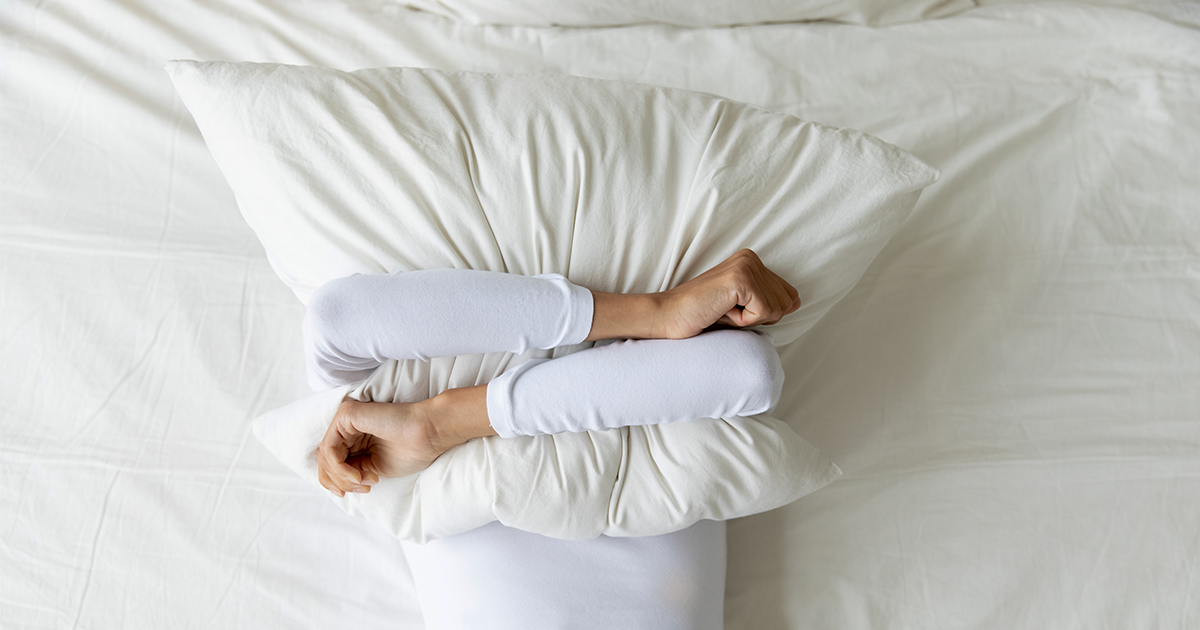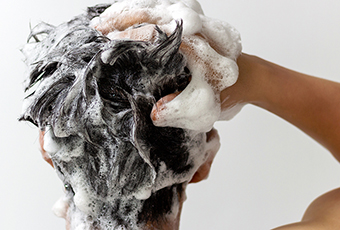Tips for getting better sleep with psoriasis

People who are managing psoriasis may be all too familiar with the sleepless nights that can accompany a flare up. It can be very hard to fall asleep and stay asleep if you are also managing painful, itchy, burning skin. If this sounds familiar, you’re not alone. In fact, fatigue is the most common complaint reported among people with autoimmune diseases.
Sleep is important for so many reasons, particularly for people living with an autoimmune condition like psoriasis. Sleep is vital for the regulation of hormones, mood, and immune response. There is also evidence that suggests sleep loss can cause both inflammation and increased infection.
But getting better sleep while managing psoriasis or psoriatic arthritis can feel like a vicious cycle. Flare ups can cause stress and disrupt sleep, which can then trigger more flare ups. As one Inspire member puts it, “I have literally had less than 6hrs of sleep in the last few days. As soon as I lay down to try and go to sleep my body somehow decides it's wide awake. I am so frustrated, I had one of my worst days yet as far as pain goes. I hurt everywhere and didn't want to move an inch, but then as soon as I try to get some sleep, forget it.”
Across Inspire, members post the tools and tips they have used for getting better sleep when dealing with a psoriasis flare. The following posts represent a sample of Inspire members’ experiences. This content should not be used as a substitute for professional medical advice, diagnosis, or treatment. As always, consult with your doctor before trying any new treatments or medications.
To access more psoriasis discussions, join the Inspire Psoriasis Community.
Over-the-counter ways to improve sleep during a psoriasis flare
From antihistamines to melatonin, there are many over-the-counter options you can try for improving your sleep during a psoriasis flare. Here are some of Inspire members’ preferred methods:
“I do take an antihistamine when it's particularly challenging, but I usually can't work that well the day after.” Go to post
“When I do end up with an itchy all-over rash, I put the softest socks I own on my hands overnight. It won't stop you from itching, but will help keep from damaging your skin too badly.” Go to post
“The other thing that helps me when the PsA pain is keeping me up is melatonin. I have read here that it's not supposed to be good for psoriasis, but I have never noticed my symptoms getting worse after using it. Even if I need to take it every night for a week. I even think that it makes things better, but that could just be an effect of a good night's sleep. I have also never noticed any lingering next-day sleepiness.” Go to post
“I suffer from insomnia way before I even started with the psoriasis and melatonin extended release, and the gummy melatonins really help me get a good night's sleep." Go to post
“I use melatonin, valarium root, gaba, and magnesium citrate and sleep really well…Ice packs applied to the itching areas help. I got socks with built in ice packs.” Go to post
You can learn more about over-the-counter remedies for psoriasis.
Prescription treatments to help ease itch or improve sleep
If you need something stronger or more targeted to help you sleep or relieve your psoriasis itch, there are different prescription treatment options that can help. These include prescription sleep aids, topical psoriasis treatments, and oral psoriasis treatments.
Hydroxyzine is a prescription strength treatment for relieving allergic skin reactions in adults and children.
“My derm prescribed hydroxyzine but it really makes me groggy the next day.” Go to post
“I take a RX hydroxyzine it helps with itching better than any other treatments.” Go to post
Prescription strength sleep aids can help adults who are suffering from insomnia. They are often prescribed for short time periods, however, and may not be suitable for long-term use. In addition, zolpidem can cause serious or life-threatening sleep behaviors, so it is not suitable for everyone.
“I also take [medication] to help with sleep when the itching gets too bad.” Go to post
“[Medication] is a short term solution and you can’t even get a subscription for more than a few months. I would not recommend it.” Go to post
Sleep is vital to support your body’s immune system. If you’re having trouble sleeping because of your psoriasis, you may be able to find relief. Speak with your doctor about different options that can help you get restful sleep.
To read more about psoriasis treatments, join the Inspire Psoriasis Community.
Disclaimer
Member comments have been lightly edited for length and clarity. This content is for general informational purposes only and does not necessarily reflect the views and opinions of any organization or individual. The content should not be used as a substitute for professional medical advice, diagnosis, or treatment. Please consult your healthcare provider about any questions you may have regarding a medical condition.




